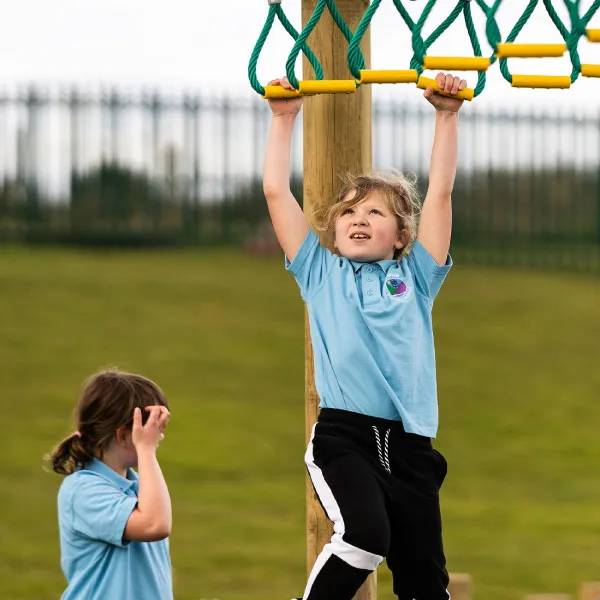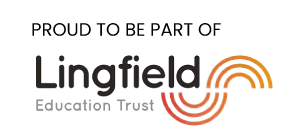Intent
At Lingdale Primary School we understand the importance of maths, not only as a subject, but the skills that children acquire that will help them through their lives. Our culture is based around the idea that everyone can be mathematicians.
Our intent is that all children will be fluent with number facts. This begins in Early Years through subitising and being able to recall facts up to 5 fluently and with automaticity. Children will be able to recall number bonds and other addition and subtraction facts by the end of KS1 and all multiplication facts by the end of LKS2. The focus in UKS2 is to consolidate all that has been learned before and build this into arithmetic practise; allowing children to use the most efficient strategy to calculate. All children will also become fluent in procedures that underpin our maths practice. This allows the children to copy the skills taught through basic fluency. This is followed by varied fluency that allows them to practise the skills taught before finally using behavioural maths through the think element – daily reasoning in the lessons. Pieced together, this enables children to problem solve efficiently and will give them the best possible chance to be successful in secondary school and beyond.
Our implementation is based around a consistent lesson delivery model (LDM) that has been designed following research into cognitive science approaches and the mastery approach to maths. Our LDM has several benefits:
- An effective and consistent approach throughout school to help children access mathematical concepts.
- It is predictable and consistent allowing all children, particularly those with SEND needs, to know what to expect.
In addition to our maths lessons, we have opportunities for spaced retrieval. This allows children to revisit concepts already taught on a daily basis.
We also have a separate session in the day devoted to fact fluency and mental maths. This runs as a Number Sense session in KS1 and mental maths sessions across KS2.
To ensure the children are benefitting from these sessions, in addition to the maths lessons, we have half-termly fact fluency tests for Y1 – Y5. This encompasses addition and subtraction throughout KS1 and at the start of Year 3. This is followed by multiplication tests for the remainder of Year 3 and the whole of Year 4 (preparation for the Multiplication Tables Check (MTC)). In UKS2 there is a diet of both to ensure those facts that will support all of their maths is secure. These assessments are in addition to end of unit tests and end of term summative assessments.
All of the data provides us with the information needed to plan next steps for ALL students regardless of need so they are learning maths at the level they need.
Early Years staff use Mastering the Curriculum as a tool to advise their planning to ensure that children are Year 1 ready. There is also a designated maths learning zone for children to apply their knowledge and opportunities across the curriculum to refer to maths. Years 1 & 2 are taught as separate year groups to ensure they receive teaching at the correct level. The curriculum in KS2 has been developed to enable the teachers to teach one input to both year groups (3 & 4; 5 & 6) and teach up. Every year they will receive a diet of maths that covers all areas of number with some of the other areas covered across a two-year programme.
Please click the links below to see an overview for each year group.
Open up the sections below to view the Long, Medium and Short term plans.
Maths – Short Term Plans – Year 1
| Name | Link |
| 1. Place Value (10) | Download |
| 2. Addition & Subtraction (10) | Download |
| 3. Measures | Download |
| 4. Place Value (20) | Download |
| 5. Properties of Shapes | Download |
| 6. Addition & Subtraction (20) | Download |
| 7. Place Value (50) | Download |
| 8. Multiplication & Division | Download |
| 9. Fractions | Download |
| 10. Position & Direction | Download |
| 11. Place Value (100) | Download |
| 12. Money | Download |
| 13. Time | Download |
Maths – Short Term Plans – Year 2
Maths – Short Term Plans – Year 5-6
Year A
| Name | Link |
| 1. Place Value | Download |
| 2. Negative Numbers | Download |
| 3. Decimals | Download |
| 4. Addition & Subtraction | Download |
| 5. Mental Maths, Order of Operations & Circles | Download |
| 6. Multiplication & Division | Download |
| 7. Fractions & FDP | Download |
| 8. Shape, Area, Perimeter & Volume | Download |
| 9. Measuring Angles – Year 5 Only | Download |
| 10. Statistics – Year 5 Only | Download |
| 11. Mass & Capacity – Year 5 Only | Download |
| 12. Financial Well-Being Projects – Year 6 Only | Download |
| 13. Calculator Projects – Secondary Readiness – Year 6 Only | Download |
Year B
| Name | Link |
| 1. Place Value | Download |
| 2. Position & Direction | Download |
| 3. Decimals | Download |
| 4. Addition & Subtraction | Download |
| 5. Mental Maths, Order of Operations & Circles | Download |
| 6. Multiplication & Division | Download |
| 7. Fraction & FDP | Download |
| 8. Algebra | Download |
| 9. Ratio | Download |
| 10. Measuring Angles – Year 5 Only | Download |
| 11. Statistics – Year 5 Only | Download |
| 12. Mass & Capacity – Year 5 Only | Download |
| 13. Financial Well-Being Projects – Year 6 Only | Download |
| 14. Calculator Projects – Secondary Readiness – Year 6 Only | Download |
Maths Key Objectives
Impact
Since introducing this approach to maths, the impact has already started to be apparent. In 2024 we have had our highest rate of children achieving full marks in the MTC (78%); above national average amount of children achieving the expected standard at the end of KS2 and a growing confidence in maths across school is noticeable from children and staff.
Click one of the links below to view some of the resources we use.



